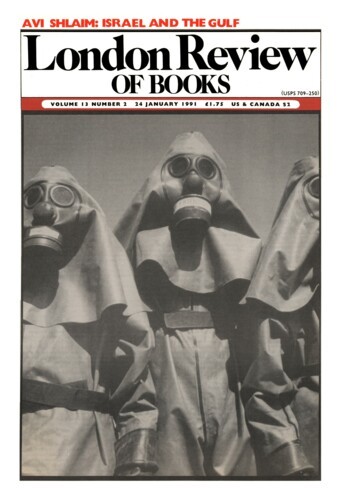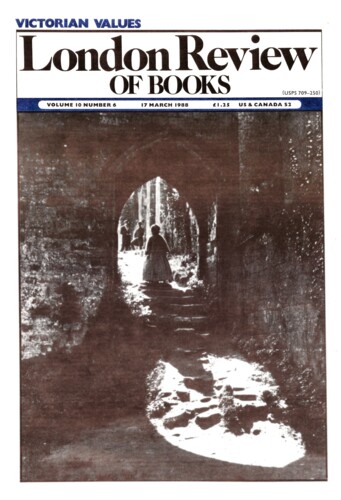Leader-Bashing
Robert Service, 24 January 1991
The coalface of Soviet politics is collapsing; among the long-term miners, the professional Sovietologists, this has had a salutary effect. Two separate work-gangs had emerged over previous decades. One drove its picks into history; the other into politics, economics or sociology. This division of labour was caused both by pressure on researchers to choose a single discipline in the humanities and social sciences, and by the global increase in researchers – although the British Government in the Eighties shamefully diminished the national commitment to Soviet studies. The transformation of the Soviet political scene under Gorbachev has ended such bifurcation. A reversion to the traditions of the earliest Sovietology has occurred. Founding figures such as E.H. Carr and Leonard Schapiro were renowned for their ability to write as knowledgeably about 1917 as about the latest political developments. Once again it is thought absurd to hold the Soviet past – which is only seven decades old – and the Soviet present in separate analytical boxes.


